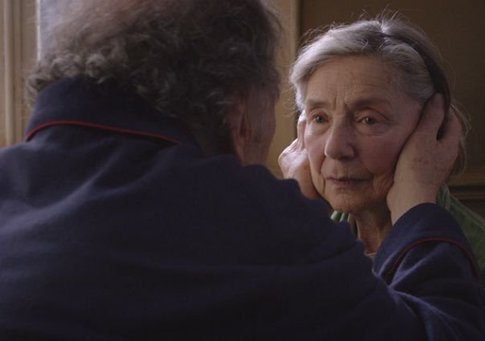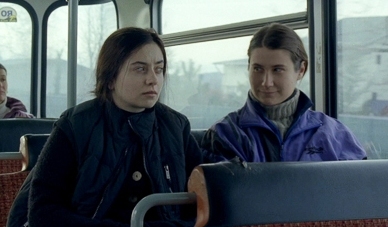Cannes 2012: The Winners and Losers


Séamas McSwiney is our guest film correspondent with decades of experience in film journalism, and work published in some top international publications. For the past fortnight he has been reporting for us from the Cannes film festival, and here he reveals the big winners.
The cloud filled skies in the middle days of Cannes 2012 also coincided with some of the darkest films, three of which are already described here in this blog. Despite their "feel-bad" impact, their artistic quality was such that they finally ended up with awards at Sunday night's closing ceremony.
Hard-Hitting Winners
The Palme d'Or went to Michael Haneke's Amour (pictured above), a chronicle of death's relentless and merciless path. This was a firm favourite throughout and indeed Haneke himself is a favourite in Cannes. Over the years, one could even say that he has in part become a French filmmaker. All of his films have had some kind of programme exposure at Le Festival and he has already won top prizes there. His films are all very  extreme in terms of human emotions and, very often, in terms of the actions and consequences of these emotions.
extreme in terms of human emotions and, very often, in terms of the actions and consequences of these emotions.
The two actresses in Christian Mungiu's Dupa Dealuri (Beyond the Hills), Cosmina Stratan and Cristina Flutur (both pictured left), jointly won the female actor award and Mungiu's scenario won Best Script. Though at a much earlier stage in his career, the Romanian director now too receives a significant part of his support and funding in France. Equally, Danish director, Thomas Vintenberg's Jagten (The Hunt) provided the opportunity for Mads Mikkelsen to win Best Actor for his telling role as a kindergarten teacher falsely accused of child abuse.
Unlikely Winners
As previously explained, none of these three are funny films in any way. However, in a more light-hearted register, Britain's Ken Loach took the 3rd place Jury Prize for The Angel's Share. The title refers to that percentage of whisky that evaporates at various stages of transit before it is consumed. The film tells tale of four young Glaswegians on a community service scheme after being convicted of minor crimes. They hear of an extremely valuable barrel of old Scotch whisky and organise an unlikely heist to get their share. To make such a caper story is unusually upbeat for Loach but, like everything he  does, it doesn't forget to emphasise the very serious social theme of exclusion at its foundation.
does, it doesn't forget to emphasise the very serious social theme of exclusion at its foundation.
Many were surprised that Reality (right) by Matteo Garrone won the Grand Jury Prize. It is a bittersweet tale of a reluctant Neapolitan fishmonger who is persuaded to audition for Big Brother by his family and friends. In the end, he takes it all too seriously and enters his own fantasy world, putting in danger everything he holds dear. It is much less convincing than the truly excellent Gomorrah, his last film which won the same prize in 2008. That fellow Italian Nanni Moretti was the jury president may have contributed to his good fortune.
The Mexican Post Tenebras Lux by Carlos Reygadas won the Best Director award. While he did show some spectacular directing- especially the opening sequence where a little child plays in a field among animals on a stormy day- the film itself was a bewildering concoction that puzzled even the most hardcore art-house film buffs.
Unexpected Omissions
One remarkable film that was omitted from the prizes is Into the Fog by Sergei Loznitsa. Classic, ponderous and simple, it tells of a rural area in Belarus in 1942 under the Nazi occupation. It is a tale of collaboration and resistance and, despite its very local personality, it captures, in a very clear and tragic way, the universal essence of this timeless dilemma.
Another omission from the awards was the playfully experimental Holy Motors, by former French wunderkind Leos Carax. A surprising and fresh film, full of interesting references and stylish imagery, it is a love story to cinema and actors, in the form of an episodic allegory to where cinema may be going and what it might become. Though not the best moment in the film, a highpoint is Kylie Minogue singing a song in the derelict décor of La Samaritaine, the celebrated former Paris department store soon to be converted into a luxury hotel.
You can read all Séamas' posts here.








